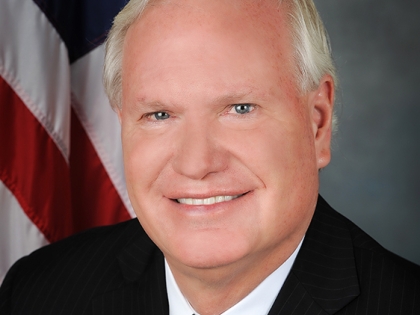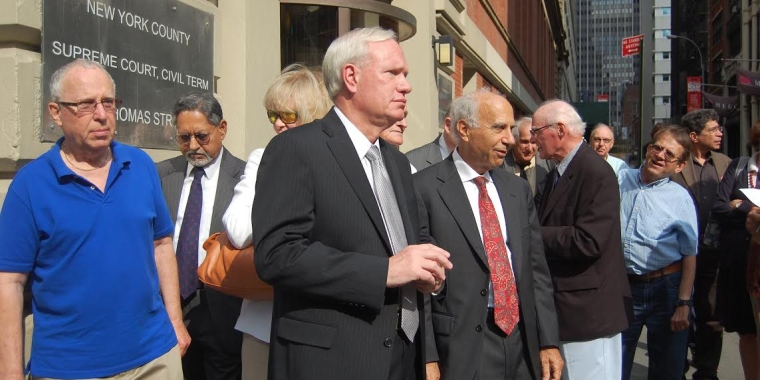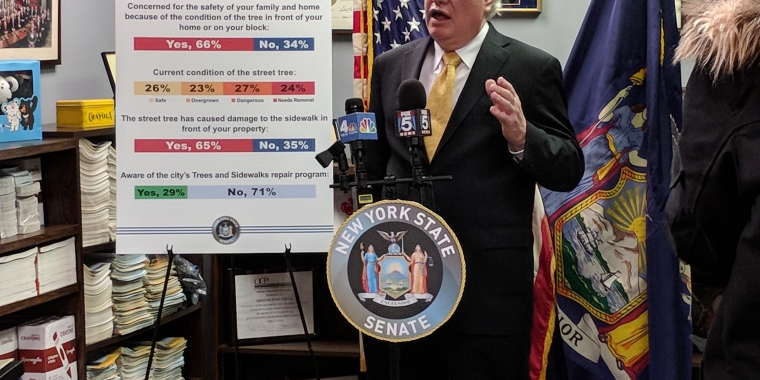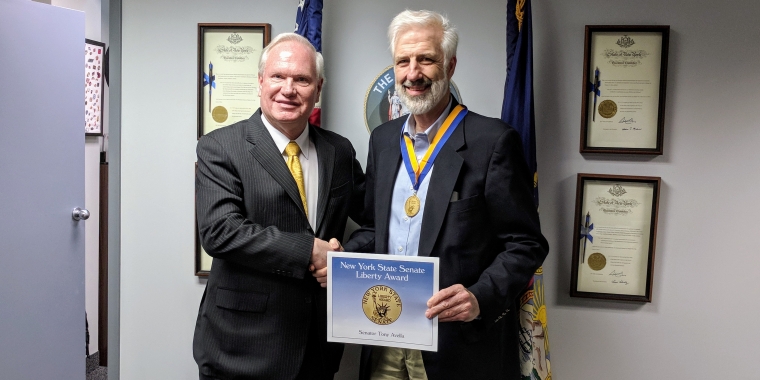
Willets Point Lawsuit Argued in New York State Supreme Court
July 31, 2014

Senator Avella and Advocacy Groups who are challenging the “Willets West” mega-mall proposal completed their oral arguments before Justice Mendoza yesterday
(Bayside, Queens) On Wednesday, the lawsuit filed by State Senator Tony Avella, City Club of New York, Queens Civic Congress, several members of Willets Point United Inc., and nearby residents/business owners against the “Willets West” mega-mall proposal was argued before the New York State Supreme Court.
Attorney John Low-Beer argued the matter on behalf of the Plaintiffs/Petitioners.
The lawsuit is challenging the give-away of 47 acres of Queens parkland worth an estimated $ 1 Billion to build the "Willets West" mega-mall adjacent to CitiField. The suit seeks a declaratory judgment to invalidate approvals already granted to the project. In addition, the suit seeks a declaratory judgment for a permanent injunction which would prevent the construction of a megamall on City parkland without respondents having obtained required State legislative authorization and without respondents having obtained any zoning for this un-zoned park area.
During the oral arguments, both parties presented their case, with the City and developers claiming entitlement to the land based on a 1961 law which authorized the construction of Shea Stadium. However, Mr. Low-Beer explained that the 1961 law never granted the defendants complete control over the premises, which is comprised of public park land.
Following the arguments, Mr. Low-Beer stated, "As they did in their legal papers, yesterday the developers and the City spent a lot of time talking about how great their project was and very little time addressing the legal issues that are before the Court. We argued that the defendants are brazenly violating State law and the City Charter's land use provisions, and we are confident that the Court will so hold."
Senator Avella added, “Most of their response, in their argument, had actually nothing to do with the issue at hand. The issue is that they still have to get the necessary approval from the State Legislature and undergo the City’s land use process before being able to develop on-site. As things stand right now, the developers are illegally taking away parkland and the City is letting them! It’s absurd and I am confident that the Court will agree.”
Mr. Michael Gruen, President of The City Club of New York, stated, “Too often in recent years, the City has acted as if parks exist to generate income rather than to serve the public’s need for places for recreation and relaxation. A strong body of law called the public trust doctrine is supposed to protect against such abuse by barring any non-park use of park land without the specific consent of the State Legislature. When the past City administration decided, without legislative approval, to turn over a large portion of the most important park in Queens to private commercial exploitation, the City Club felt it had to act to remind present and future City administrations that parks belong to the people, not to shopping center developers.”
Marty Kirchner, street organizer with Queens Neighborhoods United, stated, "As a social justice organization, Queens Neighborhoods United is honored to stand by the many plaintiffs in this lawsuit who would not comprise on such a scandalous parkland give-away. Together with numerous local residents and small business owners, we believe that under no circumstances is this mega-project justified. Not only would the city's largest mall take away precious parkland, but it would significantly diminish the quality of life throughout the surrounding neighborhoods, displacing low-cost housing and reducing the ability of immigrant family-based small businesses to thrive on nearby Roosevelt Avenue."
Senator Avella concluded, “The bottom line is that this case must be decided on merits. And from what we heard today, the defendants have no explanation as to why they did not follow the law, just that they didn’t. I think their case simply does not make sense.”
Share this Article or Press Release
Newsroom
Go to Newsroom
